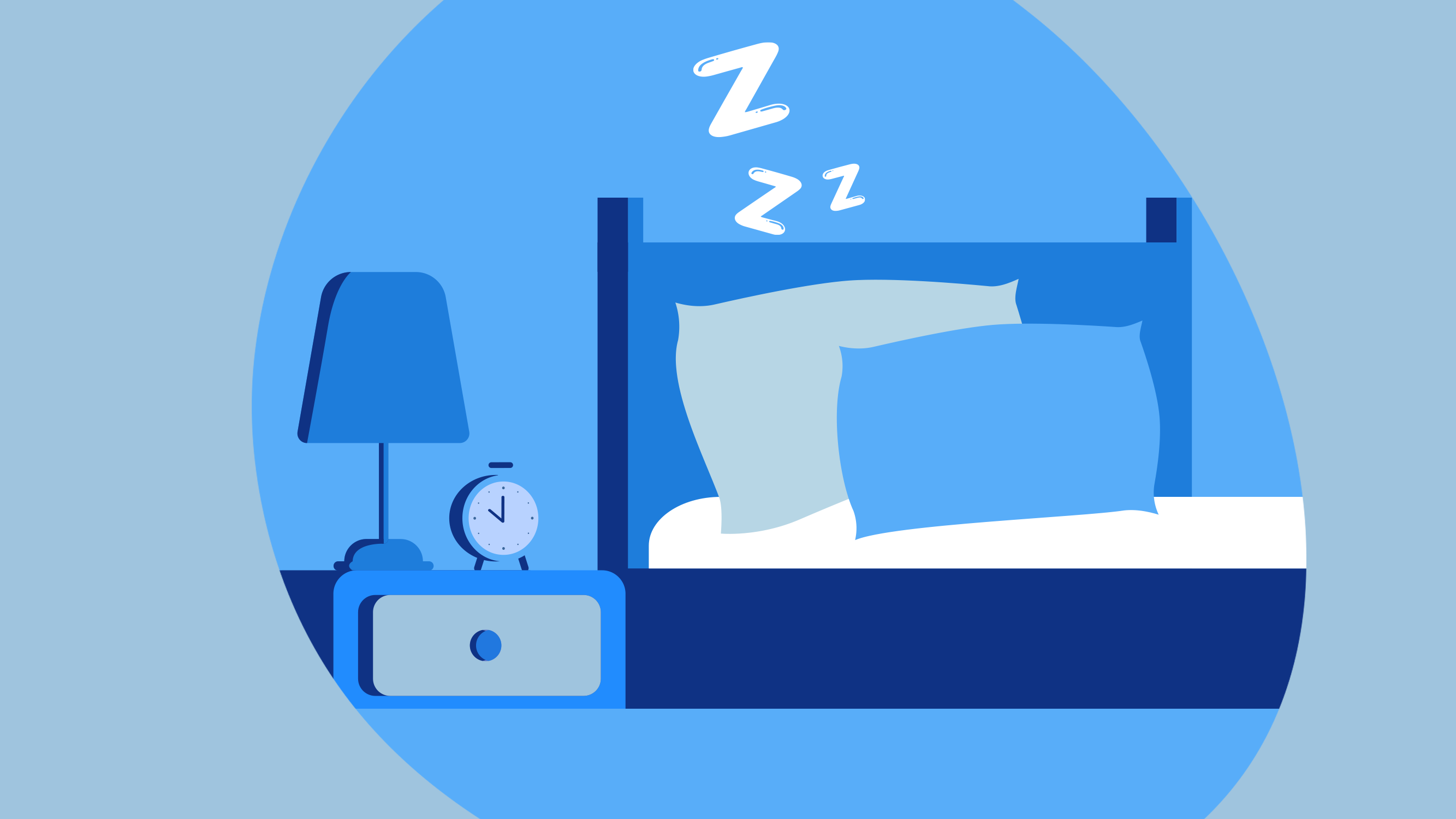Learn eleven things about sleep that parents can use to improve the health and nighttime routines of their children.
American kids are winning; unfortunately, what we’re taking first place in is sleep deprivation.
Many kids and teens aren’t getting enough sleep for a variety of reasons. In one large-scale analysis of 50 countries, Boston College researchers found that American students were actually the most sleep-deprived and that academic performance suffered as a result.
In their study, they found that internationally, 47% of all nine to ten-year-olds weren’t getting enough sleep, but among U.S. students, that number jumped to 73%. Similarly, 80% of U.S. 13 to 14-year-olds were sleep-deprived, compared to the average of 57%.
Among U.S. adults, the sleep deprivation epidemic is also an issue. Many families have busy schedules, and it’s easy to overlook rest. But, as science continues learning more about the importance of rest, it’s becoming clear that it should be a top priority for parents.
Based on the knowledge of sleep hygiene, recent studies, and expert articles, here are the top things parents should know about sleep and how to help their kids stay well-rested.
11 Things Parents Should Know About Sleep and Kids
From time needed to bedroom environments to how to deal with common issues, here are the top facts and practices that can help parents become more sleep-savvy.
1) Sleep Is Incredibly Important for Kids
Sleep should be a top priority for parents as it is clear that lack of sleep negatively affects kids (and adults, too).
Sleep is essential for physical and cognitive health and has been shown to support specific functions such as increasing healing, accelerating growth, and strengthening new memory formation; all of which are critical in development. A lack of sleep negatively affects mood, concentration, the ability to recall information, and learning the next day.
Consistently poor sleep habits in childhood set the stage for adult sleep problems, and place children and adults at at greater risk for obesity and diabetes later on.
Setting your child up with a comfortable mattress in a cool, quiet bedroom is only the first step towards helping them get the sleep they need.
2) Children & Teens Need More Sleep Than You Might Think
While quality sleep is important for all ages, kids and teenagers actually require more sleep than adults. Individual children can vary somewhat in sleep needs, but the general guidelines are as follows:
| Age | Sleep Needs |
| Newborns | 15-18 hours |
| 1-12 months | 14-15 hours |
| 1-3 years | 12-14 hours |
| 3-6 years | 11-13 hours |
| 7-12 years | 10-11 hours |
| 12-18 years | 8-10 hours |
Family routines and bedtimes should take into consideration the sleep needs of each child to ensure everyone is getting the amount they need to thrive.
“Early infant sleep is characterized by its polyphasic sleep cycles, meaning multiple bouts of sleep across a day. As they age, infants’ sleep becomes consolidated into fewer, but longer, bouts of sleep,” says Dr. Katharine Simon, a clinical pediatric psychologist.
For younger children, sleep is often divided into a midday nap and night sleep, though most kids grow out of naps by elementary school due to decreased need for midday naps and school demands.
Dr. Simon adds, “During the transition to nighttime-only sleep, total sleep time (nap and nighttime) becomes consolidated to nighttime sleep as children continue to require similar amounts of sleep. One way to support your child’s shifting sleep needs is to shift his/her bedtime earlier.”
For older kids and teens, setting bedtimes can seem a little more futile, but it is likely still important to ensure they get enough rest.
A large Columbia University study found that adolescents whose parents set bedtime at midnight or later were more likely to suffer from depression and have suicidal thoughts compared to those whose bedtimes were set at 10 PM or earlier.
Study authors suggested that the increased moodiness caused by a lack of sleep can make it harder to cope with stress and affect social relationships, while also affecting judgment and impulse control.
3) Following Your Child’s Sleep Clock Can Help
Every person has an internal sleep clock that regulates wakefulness and tiredness. If you are struggling to get your child to sleep, it could be helpful to identify their natural rhythms to determine when you should set bedtime.
Melatonin is typically released late in the evening, causing drowsiness. Trying to put your child to sleep too soon can leave them tossing, turning, and complaining, while missing the drowsiness window can leave them overtired, grouchy, and fighting bed.
One study of toddlers Verified Source National Library of Medicine (NIH) World’s largest medical library, making biomedical data and information more accessible. View source found most young kids were morning types, but that significant variation did exist. Toddlers whose melatonin surged earlier in the evening fell asleep earlier and sooner after laying down, while those whose melatonin surged later fell asleep later and were also more likely to fight bedtime.Authors suggested looking for cues like yawning, rubbing eyes, and moodiness, then setting bedtimes within 30 minutes of these drowsiness cues. Dimming lights in the hour before bed can also be helpful.
While there are some limitations to following natural sleep patterns due to early school start times (especially for natural night owls and teens), the American Academy of Pediatrics has recently started pushing for later school start times, after 8:30 AM.
About 15% of schools currently start later, and with increased attention and studies highlighting the importance of rest, the trend may very well increase. The AAP says later school times benefit adolescents by making it easier to get enough rest, improving grades and standardized test scores, Verified Source Wiley Multinational publishing company specializing in academic and instructional materials. View source and reducing auto accident rates.
4) Consistency is Important
Our internal clock functions best when sleep and wake times remain relatively consistent.
Erratic schedules can throw off the body’s natural rhythms, making sleep issues more likely at any age and possibly contributing to higher body weight as well. Ideally, wake times and bedtimes should not vary more than an hour from night to night, even on weekends.
Having a regular nighttime routine is an important part of good sleep hygiene for kids and adults alike. Following a similar 15 to 30 minute routine such as a bath and reading a story signals it’s time for sleep. Electronics should ideally not be part of the pre-bed program.
KidsHealth.org suggests letting children choose pajamas, stuffed animals, books, and/or songs during the routine to increase complicity, while older teens should be encouraged to balance sleep needs, activities and responsibilities.
5) Smartphones, Televisions & Computers Steal Sleep

Smartphones, tablets, electronic games, laptops, computers, and televisions are all potential sleep stealers for your child. According to researchers, more TV, especially before bedtime has been associated with Verified Source American Academy of Pediatrics (AAP) Professional society for pediatricians that aims to improve children’s health everywhere. View source :
- Resisting sleep
- Falling asleep later
- Increased sleep anxiety
- Getting less sleep overall
A Belgian university study published in the journal SLEEP Verified Source Oxford Academic Research journal published by Oxford University. SLEEP" class="src-popup-link"> View source found the following on electronics and kids’ rest habits:
- Children with TVs or computers in their rooms went to sleep later on weekdays and weekends and spent less time in bed.
- Children who watched more TV, spent more time playing computer games or spent more time using the Internet all went to bed later and reported higher levels of tiredness.
A seven-year study from Harvard also found that the more TV a child watched, the less they slept. Each hour of TV was associated with seven minutes less sleep. The study found that having a TV in the child’s room reduced sleep by 30 minutes per night.
Another study from the JFK Medical Center focusing on teens found that the average teenager’s sleep was impacted by receiving late-night texts and video games usage. They noted correlations between late-night media use and attention disorders, mood swings, anxiety, and cognitive functioning during the day.
Other research has also linked social media use to increased anxiety, stress, and sleep trouble for teens – another reason to keep phones out of sight at night.
Experts generally recommend keeping electronics and phones out of the room at night, and not placing televisions inside kids’ bedrooms. The use of games, phones, and TV should end 1 hour before bedtime, as the blue light they emit can affect melatonin release, delay sleep, and throw off the internal clock.
See also our guide on how and why parents should limit screen time.
6) Violent Media Really Can Cause Problems
Many of us have watched a scary movie or read a frightening book only to have it cause some anxiety before bed or turn up in dreams later on.
According to a study published in the Pediatrics journal, Verified Source American Academy of Pediatrics (AAP) Professional society for pediatricians that aims to improve children’s health everywhere. View source it’s not just scary movies before bed that cause sleep problems – watching violent programming any time of day and media exposure (TV, games, or Internet) after 7 PM were linked with increased difficulties falling asleep and more nightmares in kids aged three to five.
They found that children with TVs in their rooms had greater sleep difficulties; additional TV viewing at night coupled with violent media exposure during the daytime significantly increased effects on sleep. It made no difference whether media was viewed with a parent or not.
Researchers found no difference in the effects of violence portrayed by live-action or animated sources, meaning even the silly violence portrayed in children’s cartoons could be detrimental to sleep for very young kids. Experts suggest keeping TV and video games age-appropriate for younger kids, and limiting TV and video games throughout the day and especially in the evening.
7) Some Foods Make Bad Bedtime Snacks
Kids typically have high metabolisms and it’s not unusual for them to get hungry after dinner. Evening snacks can be good for staving off hunger and helping kids sleep easier, but some foods should be avoided close to bed.
Caffeine, sugar, spicy and heavy, high-fat foods are sleep stealers, and some research indicates that compounds in butter, red meat, cheese, and high-salt foods may also affect rest.
On the other hand, foods with healthy carbs and a small portion of protein can help promote sleep. Foods rich in nutrients like alpha-carotene, selenium, lycopene, potassium, magnesium, tryptophan, and calcium are also associated with better sleep.
A few nighttime snack ideas include:
- whole-grain crackers with turkey
- a banana
- celery with nut butter
- a boiled egg and toast
- fresh veggies
- dried fruits, seeds and nuts
- low-sugar yogurt or low-fat cottage cheese
- a glass of milk
It’s also helpful to make sure they stay hydrated with plenty of water during the day, as gulping too much water before bed can mean waking up in the middle of the night.
8) Activity & Sunlight Help Sleep
Getting physical activity during the day helps people sleep better at night, as numerous studies have shown.
According to the U.S. Office of Disease Prevention and Health Promotion, children need at least 60 minutes of moderate to vigorous physical activity each day, however, less than 4% of elementary, 8% of middle and 2% of high schools still have daily physical education classes.
If your child seems too active or restless near bedtime it might be worth taking a look at their activity levels to make sure they aren’t spending too much time sedentary.
Natural sunlight also plays a big role in the body’s internal clock. It is recommended that people get sunlight exposure earlier in the morning to help support natural sleep and wake cycles.
For kids, physical activity and outdoor play can also mean time spent away from TV and other media, which also supports healthy rest.
9) Sleep-Deprived Teens Make Dangerous Drivers

While all parents know that distractions impair teens’ driving, drowsiness is also a major factor in adolescent accidents.
Over 100,000 accidents and thousands of injuries and deaths are attributed to drowsy driving each year, with monetary costs in the billions. More than half of all fall-asleep accidents are caused by drivers under 25, and more than half of teens reported driving drowsy in the past year, according to the National Sleep Foundation. Verified Source National Sleep Foundation Nonprofit focused on educating about sleep health. View source
They also found that teens that sleep less than 8 hours per night are involved in 33% more accidents than those who are well-rested. Overall, the leading cause of death for teens remains automobile accidents, highlighting the importance of preventing risk factors like drowsiness.
Tying sleep into tangible privileges that teens enjoy, like driving, can be another incentive to encourage healthier habits.
10) Persistent or Abnormal Issues Should Be Discussed With a Pediatrician
If you notice sleep issues that stick around or behaviors that seem abnormal, it can be helpful to discuss concerns with your child’s pediatrician. While the occasional fussy night is likely no big deal, things that experts recommend discussing with a doctor include:
- Excessive snoring
- Frequent wakings throughout the night
- School or behavioral problems
- Daytime sleepiness
- Bedwetting
- Severe nightmares or night terrors that interfere with daytime functioning
- Sleep issues that persist for more than 2 weeks
11) Don’t Forget About Your Own Needs
Parents often overlook their own needs, but it is also important to ensure you are getting enough sleep, too.
Adults need seven to nine hours per night. Sleeping less than seven hours can impair your mental state and place you at greater risk for diseases like obesity, diabetes and Alzheimer’s over time.
One study from researchers at the University of Illinois at Urbana-Champaign found that children of parents who get less than seven hours of sleep were 1.3 times more likely to be overweight.
When you’re fatigued and tired yourself, it can make it harder to keep up with routines and support healthy sleep habits in kids.
While parents don’t necessarily need to become sleep experts, it can be beneficial to know the basics of healthy rest, what to expect, and how to best encourage healthy sleep in kids and teens.
What do you do to promote better sleep for your kids? Do they value sleep as they should?
About the author
Rosie Osmun, a Certified Sleep Science Coach, brings a wealth of knowledge and expertise to the health and wellness industry. With a degree in Political Science and Government from Arizona State University College of Liberal Arts and Sciences, Rosie's academic achievements provide a solid foundation for her work in sleep and wellness. With over 13 years of experience in the beauty, health, sleep, and wellness industries, Rosie has developed a comprehensive understanding of the science of sleep and its influence on overall health and wellbeing. Her commitment to enhancing sleep quality is reflected in her practical, evidence-based advice and tips. As a regular contributor to the Amerisleep blog, Rosie specializes in reducing back pain while sleeping, optimizing dinners for better sleep, and improving productivity in the mornings. Her articles showcase her fascination with the science of sleep and her dedication to researching and writing about beds. Rosie's contributions to a variety of publications, including Forbes, Bustle, and Healthline, as well as her regular contributions to the Amerisleep blog, underscore her authority in her field. These platforms, recognizing her expertise, rely on her to provide accurate and pertinent information to their readers. Additionally, Rosie's work has been featured in reputable publications like Byrdie, Lifehacker, Men's Journal, EatingWell, and Medical Daily, further solidifying her expertise in the field.
View all posts



